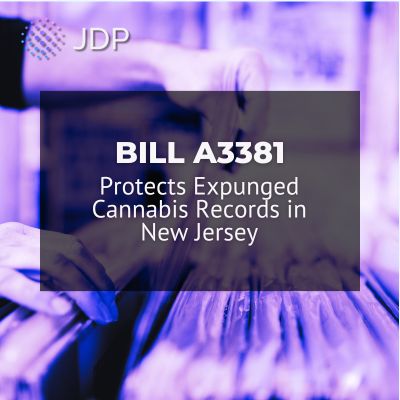October 20, 2024
The New Jersey General Assembly recently passed new legislation under Bill A3881. This bill protects the criminal records of select offenders, including those who have faced marijuana charges.
According to the Assembly, this bill will apply to those who are “granted an order of expungement by the Superior Court pursuant to N.J.S.2C:52-1 et seq. 1.” This order also includes marijuana-related offenses. As such, Bill A3881 forbids covered criminal records from appearing in background screenings.
Those in favor of Bill A3881 have commented on its potential to improve privacy and equality for those with criminal records. They argued that affected individuals deserve a second chance, and Bill A3881 helps overcome the barriers to a second chance. These criminal records acted as a barrier to employment, volunteering, licenses, and other crucial opportunities to participate in society.
Legislation creating large amounts of expungement orders has presented significant work, impacting government agencies’ ability to overcome backlogs. The backlog of unprocessed expungement orders presents a substantial risk of disseminating information that should not appear on background checks. Sharing such data could consequently affect job searches, housing applications, and any process that requires a background screening.
Last April, New Jersey’s Attorney General revealed how the state faced a backlog of nearly 20,000 records eligible for expungement. This backlog included marijuana-related records and eventually triggered a class-action lawsuit. As such, the backlog led to an Interim Consent Order for a more timely expungement of the records covered by Bill A3881.
Proponents of Bill A3881 believe it will help New Jersey reform its criminal justice system by supporting rehabilitated individuals as they re-enter society. They believe the bill would help guarantee access to jobs, housing, and more to those otherwise hindered by their criminal records. As such, those with marijuana-related charges should not have to worry about their history affecting background checks.
In a press release, one sponsor commented, “This unanimous vote underscores the importance of protecting privacy and ensuring fairness in our justice system.” The sponsor added, “Expungements are intended to provide individuals with a second chance, and this legislation ensures that they are not burdened by their past when it has been legally erased.”
However, many acknowledge that it will take time to work through the backlog. One obstacle causing more backlog is the task placed upon the State Bureau of Identification (SBI). According to Bill A3881, the SBI must identify unprocessed expungement orders before they can share criminal records. They must also update their records to ensure eligible expungements do not interfere with an individual’s chances to acquire employment, housing, or education.
Disclaimer:
Information provided here is for educational and informational purposes only and should not constitute as legal advice. We recommend you contact your own legal counsel for any questions regarding your specific practices and compliance with applicable laws.
